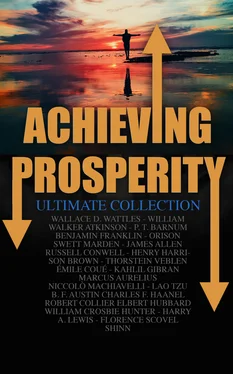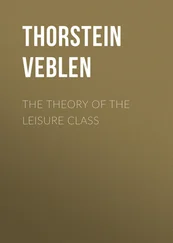For some months after this, the court jewelers busied themselves in peddling their necklace about among the courts of Europe. But none of these concerns found it convenient just then to pay out three hundred and sixty thousand dollars for a concatenation of eight hundred diamonds; and still the sparkling elephant remained on the jewelers’ hands.
Time passed on. Madame Campan, one of the Queen’s confidential ladies, happened to meet Boehmer one day, and the necklace was alluded to.
“What is the state of affairs about the necklace,” asked the lady.
“Highly satisfactory,” replied Boehmer, whose serenity of countenance Madame Campan had already remarked. “I have sold it to the Sultan at Constantinople, for his favorite Sultana.”
This the lady thought rather curious, but she was glad the thing was disposed of, and said no more.
Time passed on again. In the beginning of August 1785, Boehmer took the trouble to call on Madame Campan at her country-house, somewhat to her surprise.
“Has the Queen given you no message for me?” he inquired.
“No!” said the lady; “What message should she give?”
“An answer to my note,” said the jeweler.
Madame remembered a note which the Queen had received from Boehmer a little while before, along with some ornaments sent by his hands to her as a present from the King. It congratulated her on having the finest diamonds in Europe, and hoped she would remember him. The Queen could make nothing of it, and destroyed it. Madame Campan therefore replied,
“There is no answer, the Queen burned the note. She does not even understand what you meant by writing that note.”
This statement very quickly elicited from the now startled German a story which astounded the lady. He said the Queen owed him the first instalment of the money for the diamond necklace; that she had bought it after all; that the story about the Sultana was a lie told by her directions to hide the fact; since the Queen meant to pay by instalments, and did not wish the purchase known. And Boehmer said, she had employed the Cardinal de Rohan to buy the necklace for her, and it had been delivered to him for her, and by him to her.
Now the Queen, as Madame Campan knew very well, had always strongly disliked this Cardinal; he had even been kept from attending at Court in consequence, and she had not so much as spoken to him for years. And so Madame Campan told Boehmer, and further she told him he had been imposed upon.
“No,” said the man of sparklers decisively, “It is you who are deceived. She is decidedly friendly to the cardinal. I have myself the documents with her own signature authorizing the transaction, for I have had to let the bankers see them in order to get a little time on my own payments.”
Here was a monstrous mystification for the lady of honor, who told Boehmer to instantly go and see his official superior, the chief of the king’s household. She herself being very soon afterwards summoned to the Queen’s presence, the affair came up, and she told the Queen all she knew about it. Marie Antoinette was profoundly distressed by the evident existence of a great scandal and swindle, with which she was plainly to be mixed up through the forged signatures to the documents which Boehmer had been relying on.
Now for the Cardinal.
Louis de Rohan, a scion of the great house of Rohan, one of the proudest of France, was descended of the blood royal of Brittany; was a handsome, proud, dissolute, foolish, credulous, unprincipled noble, now almost fifty years old, a thorough rake, of large revenues, but deeply in debt. He was Peer of France, Archbishop of Strasburg, Grand Almoner of France, Commander of the Order of the Holy Ghost, Commendator of the benefice of St. Wast d’Arras, said to be the most wealthy in Europe, and a Cardinal. He had been ambassador at Vienna a little after Marie Antoinette was married to the Dauphin, and while there had taken advantage of his official station to do a tremendous quantity of smuggling. He had also further and most deeply offended the Empress Maria Theresa, by outrageous debaucheries, by gross irreligion, and above all by a rather flat but in effect stingingly satirical description of her conduct about the partition of Poland. This she never forgave him, neither did her daughter Marie Antoinette; and accordingly, when he presented himself at Paris soon after she became Queen, he received a curt repulse, and an intimation that he had better go to—Strasburg.
Now in those days a sentence of exclusion from Court was to a French noble but just this side of a banishment to Tophet; and de Rohan was just silly enough to feel this infliction most intensely. He went however, and from that time onward, for year after year, lived the life of a persevering Adam thrust out of his paradise, hanging about the gate and trying all possible ways to sneak in again. Once, for instance, he had induced the porter at the palace of the Trianon to let him get inside the grounds during an illumination, and was recognized by the glow of his cardinal’s red stockings from under his cloak. But he was only laughed at for his pains; the porter was turned off, and the poor silly miserable cardinal remained “out in the cold,” breaking his heart over his exclusion from the most tedious mess of conventionalities that ever was contrived—except those of the court of Spain.
About 1783, this great fool fell in with an equally great knave, who must be spoken of here, where he begins to converge along with the rest, towards the explosion of the necklace swindle. This was Cagliostro, who at that time came to Strasburg and created a tremendous excitement with his fascinating Countess, his Egyptian masonry, his Spagiric Food (a kind of Brandreth’s pill of the period,) which he fed out to poor sick people, his elixir of life, and other humbugs.
The Cardinal sent an intimation that he would like to see the quack. The quack, whose impudence was far greater than the Cardinal’s pride, sent back this sublime reply: “If he is sick let him come to me, and I will cure him. If he is well, he does not need to see me, nor I him.”
This piece of impudence made the fool of a cardinal more eager than ever. After some more affected shyness, Cagliostro allowed himself to be seen. He was just the man to captivate the Cardinal, and they were quickly intimate personal friends, practising transmutation, alchemy, masonry, and still more particularly conducting a great many experiments on the Cardinal’s remarkably fine stock of Tokay wine. Whatever poor de Rohan had to do, he consulted Cagliostro about it, and when the latter went to Switzerland, his dupe maintained a constant communication with him in cipher.
Lastly is to be mentioned Jeanne de St. Remi, Countess de Lamotte de Valois de France, the chief scoundrel, if the term may be used of a woman—of the necklace affair. She seems to have been really a descendant of the royal house of Valois, to which Francis I. belonged; through an illegitimate son of Henry II. created Count de St. Remi. The family had run down and become poor and rascally, one of Jeanne’s immediate ancestors having practiced counterfeiting for a living. She herself had been protected by a certain kind hearted Countess de Boulainvilliers; was receiving a small pension from the Court of about $325 a year; had married a certain tall soldier named Lamotte; had come to Paris, and was living in poverty in a garret, hovering about as it were for a chance to better her circumstances. She was a quick-witted, bright-eyed, brazen-faced hussy, not beautiful, but with lively pretty ways, and indeed somewhat fascinating.
Her protectress, the countess de Boulainvilliers, was now dead; while she was alive Jeanne had once visited her at de Rohan’s palace of Saverne, and had thus scraped a slight acquaintance with the gay Cardinal, which she resumed during her abode at Paris.
Читать дальше












